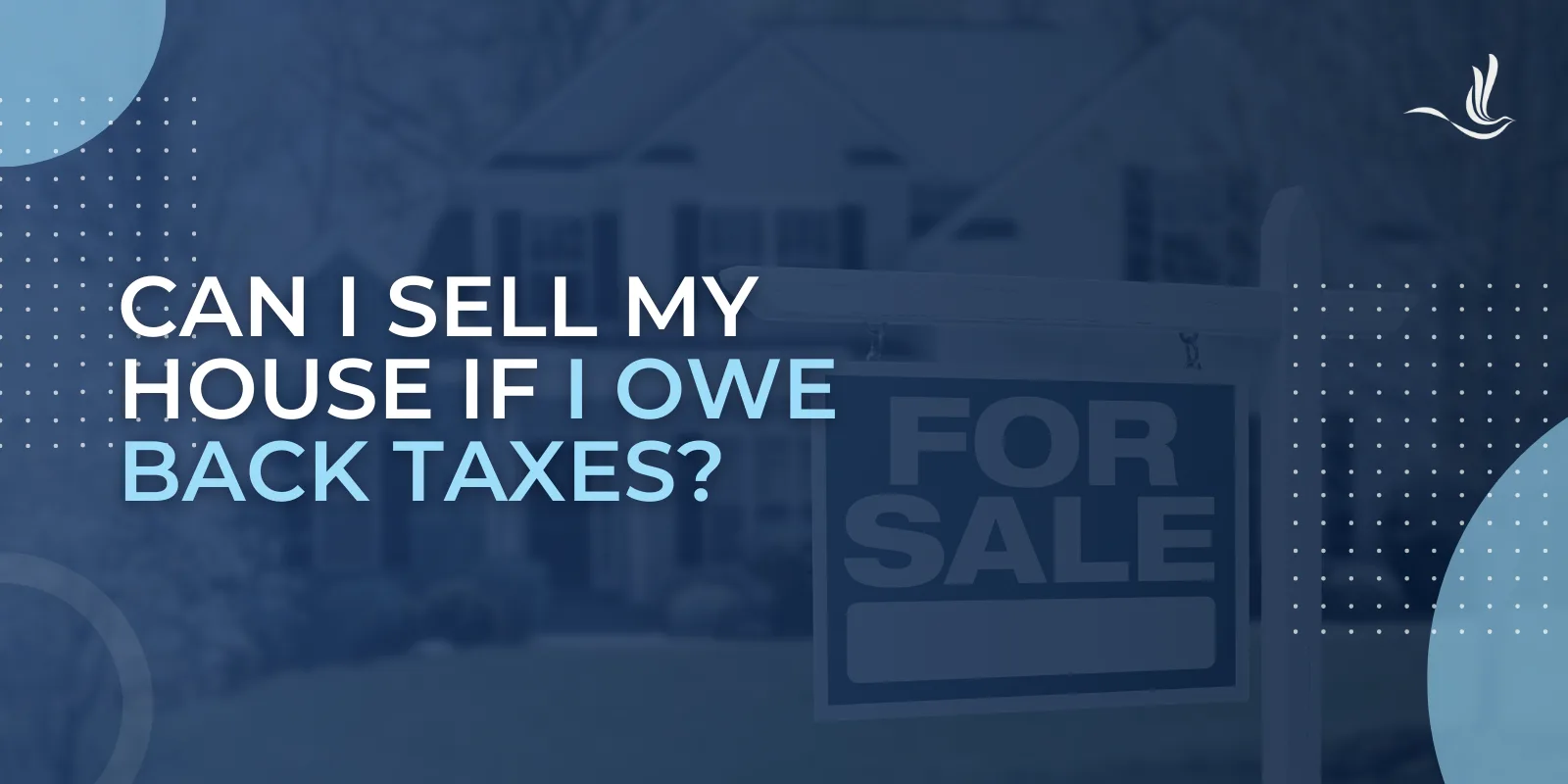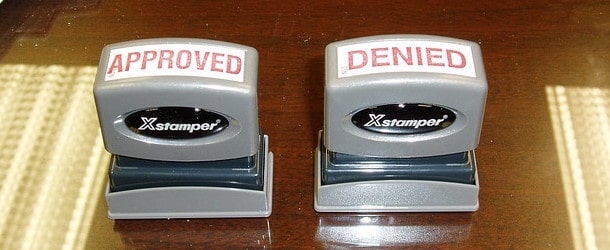Owing back taxes to the IRS can be stressful enough on its own—but if you’re also trying to sell your home, the situation might feel even more overwhelming. You may be wondering: Can I legally sell my house if I owe the IRS? Will they seize the proceeds? Will buyers even want a home with an IRS lien on it?
The good news is that it is absolutely possible to sell your house if you owe IRS back taxes. However, the presence of a federal tax lien changes the process. Understanding how IRS liens work, what steps to take before listing your home, and how to work with the IRS during escrow will make a significant difference in how smoothly your sale goes.
What Happens When You Owe Back Taxes to the IRS?
If you have unpaid federal income taxes, the IRS can—and often does—file a Notice of Federal Tax Lien. This lien is a public document that establishes the government’s legal claim to your property. It doesn’t mean the IRS is seizing your home, but it does mean the IRS is protecting its interest in any assets you own, including real estate.
Once a lien is filed, it attaches to everything you own and may acquire, including your home, vehicles, bank accounts, and other property. This lien also follows the property, meaning it must be dealt with before you can transfer ownership to a buyer. When a title company performs a title search during escrow, the federal tax lien will appear and must be resolved to close the sale.
Let’s say you owe the IRS $45,000 from several years of unpaid taxes. The IRS has filed a lien that attaches to your house, which you now want to sell. Unless you take specific steps to discharge the lien or satisfy the debt, that lien will block the transfer of clear title to a buyer.
Can You Legally Sell a House with an IRS Tax Lien?
You can sell a home with an IRS lien, but you cannot do so without addressing the lien during the transaction. The IRS must be notified and will usually require that part or all of the sale proceeds be used to pay down your tax debt.
The key term here is “Certificate of Discharge of Property from Federal Tax Lien.” This is a document you must obtain from the IRS to remove the federal tax lien from a specific piece of property. In this case, this is your house, so you can legally sell it. This lien discharge applies only to that property, not to your overall tax debt.
This means that the IRS is agreeing to release its claim on your home so the sale can go through. Your unpaid taxes still exist unless they’re paid in full with the sale proceeds. If you’re not paying the full balance, the IRS may still keep its lien on your other assets, such as a bank account, vehicle, or future income. So, the certificate doesn’t wipe out your debt. It simply clears the title on your home so a buyer can take ownership without being affected by the IRS lien.
How the IRS Gets Paid During Escrow
If you have enough equity in your home, the IRS will typically allow the sale to go through as long as they are paid at closing. For example, if you’re selling your home for $500,000, and you owe $300,000 on your mortgage and $40,000 to the IRS, escrow will arrange to pay off both the mortgage and the IRS lien out of the sale proceeds. The remaining balance (minus other closing costs) is yours. This process is common and routine, but it must be handled properly, and the IRS must be involved ahead of time.
What If You Don’t Have Enough Equity to Cover the IRS Debt?
Selling gets more complicated when your home equity won’t fully cover the tax debt. For instance, imagine you owe $250,000 on your mortgage, you owe the IRS $80,000, and your home sells for $300,000. There isn’t enough cash to satisfy the full IRS lien.
In these cases, you may still be able to sell the home by applying for a partial discharge of the lien. This allows the property to be released from the lien even though the IRS isn’t being paid in full.
Submitting IRS Form 14135
To request a discharge of the lien, you’ll need to submit Form 14135, Application for Certificate of Discharge of Property from Federal Tax Lien. Along with this form, you’ll need to provide:
- A copy of the sales contract or listing agreement
- A detailed closing statement or estimated settlement sheet
- A current property appraisal or market analysis
- Information about how sale proceeds will be allocated
- Details on any remaining assets or financial situation
This application needs to be submitted to the IRS at least 30–45 days before closing, though more time is advisable. If the IRS approves the discharge, they will issue the certificate and allow the property to be sold, even if they are only receiving partial payment. In many cases, the IRS may accept whatever funds are available at closing if they determine it’s in their best interest and you have limited ability to pay the balance through other means.
How to Prepare for a Sale If You Owe IRS Back Taxes
When selling a house with an IRS lien, advance preparation is critical. Waiting until escrow to disclose the lien or resolve the debt can delay or even derail your sale. Here’s how to move forward strategically.
Step 1: Confirm the Lien and Amount Owed
First, determine exactly how much you owe and whether a lien has been filed. You can request a copy of your IRS tax account transcript or contact the Centralized Lien Unit to confirm the status of any liens. Even if you’re on a payment plan, the IRS lien remains active until your balance is paid in full or otherwise resolved. A lien doesn’t automatically go away just because you’re making payments.
Step 2: Work With a Tax Professional
Selling a home with an IRS lien is not a do-it-yourself situation. A qualified tax professional, preferably an Enrolled Agent, CPA, or tax attorney, can guide you through the application process, communicate with the IRS on your behalf, and help you determine the best course of action based on your financial situation. They can also advise you on whether an Offer in Compromise or another tax resolution strategy might apply.
Step 3: Notify the IRS Early
Once you’re preparing to list your home or enter into a sale agreement, you must involve the IRS early. The discharge application can take several weeks, and the IRS has the legal right to block a property transfer if their lien is not properly addressed. If your sale is delayed due to late communication with the IRS, you could risk losing the buyer or facing contract penalties.
Step 4: Work Closely with Escrow and Title
Once a buyer is in place, the title company and escrow officer will need to coordinate with your tax advisor and the IRS to ensure everything is handled properly. The IRS must provide payoff instructions or confirm that they’re accepting partial proceeds in exchange for discharging the lien. Title companies cannot issue clear title until they have formal confirmation from the IRS that the lien is being removed or satisfied as part of the closing.
Will the IRS Take All of My Home Sale Proceeds?
If your home has enough equity to cover your IRS debt in full, then yes, the lien will be paid at closing before you receive any money. But if there is more equity than the IRS is owed, the remaining funds are yours. For example, if you owe the IRS $35,000 and the net proceeds from your home sale (after the mortgage is paid off) are $100,000, then the IRS will take $35,000 and you will keep the remaining $65,000.
If the proceeds aren’t enough to fully satisfy the debt, you may be able to negotiate with the IRS to release the lien in exchange for a portion of the proceeds and then continue repaying the remaining balance afterward. The IRS generally doesn’t want to block a home sale, especially when it means collecting a significant portion of what they’re owed. Their main goal is to protect the government’s financial interest—not to punish taxpayers trying to get back on track.
What Happens After the Sale?
If the IRS debt is fully paid at closing, the lien is released, and your tax obligations are resolved, at least for the periods covered by that lien. If the IRS accepted partial payment, the lien will be released from the property, but your remaining balance will still exist. You’ll need to continue with your existing payment plan, negotiate new terms, or explore other resolution options like an Offer in Compromise or Currently Not Collectible status.
Be sure to follow up with your tax professional to ensure the IRS issues a formal Certificate of Release of Federal Tax Lien. This should be recorded with your local county so the public record shows that the lien is no longer in effect.
Tax Help for Those Who Owe
Selling a home while owing the IRS is not only possible—it’s fairly common. However, it does require coordination, paperwork, and a clear understanding of how the IRS lien process works. With proper planning and professional guidance, you can navigate the sale without unnecessary stress. If you’re unsure how to proceed or overwhelmed by the process, reach out to a tax professional who can advocate for you, coordinate with the IRS, and help ensure your home sale goes through smoothly—even with a lien hanging over it. Optima Tax Relief is the nation’s leading tax resolution firm with over a decade of experience helping taxpayers with tough tax situations.
If You Need Tax Help, Contact Us Today for a Free Consultation
Publisher: Source link











